Text

Thank you @katsblogaaaah and everyone who got me to 50 reblogs!
0 notes
Text
The Anti-Bojack: Anti-Intellectualism and the Death of Substance
In the blog essay “Staging Philosophy: the relationship between philosophy and drama”, Kristen Gjesdal opines on the home of philosophy. Many today would consider philosophy a relic of a bygone era with names such as Keikegaard, Voltaire, and Neitzsche. Many don’t know, however, of the close relationship philosophy has always held with the arts. Gjesdal mentions Ibsen in the article, discussing how many playwrights of the time were avid students of philosophy and how many philosophers regarded the arts highly. Nietzsche spoke of social leaders, specifically the religious leaders of his day in Beyond Good and Evil when he wrote, “Men, not great enough, nor hard enough, to be entitled as artists to take part in fashioning man.” Frankly denouncing the power and influence held by the religious men which he felt was more appropriately left in the hands of artists. In fact, Nietzche considered art the definition of culture and hence why he says that artists are the ones who should be responsible for shaping society and defining what it means to be “man”. As such, the expressions of art, poetry to cinema, is a definition of man and inherently a philosophy.
Bojack Horseman is an openly philosophical series that plays with existentialist schools of thought. Having liked several tweets endorsing the comparison of her work to that of Raphael Bob-Waksberg, Vivienne Medrano demands her work be valued the same way. From being favorably compared to Bojack Horseman to being praised as the “Anti-Bojack”. Which begs to question, what does that even mean? First let’s discuss the Philosophy behind Bojack Horseman, then compare the tweets Medrano liked and her series to that of Bojack directly, and then study the overlapping themes and why Medrano’s style of writing makes her storytelling a mockery to the art.
Existentialism in particular has been the darling of the theater for about the last 150 years, though generally ridiculed by “proper” society. For a philosopher to be labeled a nihilist or existentialist was often a denouncement of their school of thought, often for their general rejection of fundamental social structures like ethics. In 1942, writer Albert Camus published his essay The Myth of Sisyphus, rebranding traditional existentialist concepts as Absurd philosophy.
Camus begins his work poised with the question of suicide and whether life is worth living at all. He argues that life is inherently meaningless, an idea originating with Kierkegaard, but while the latter sided with finding purpose in constitutions like religion, Camus argues that religion itself is a philosophical suicide. In the Routledge encyclopedia of philosophy by Charles Guignon, he writes of the criticisms levied against existential and absurdist philosophies in a society awash in moralist anti-intellectualism. He opens this section by saying, “Existentialism has been criticized from a number of different angles. One line of criticism holds that the emphasis on individual freedom and the rejection of absolutes in existentialism tends to undermine ethics; by suggesting that everyday life is ‘absurd’ and by denying the existence of fixed, binding principles for evaluating our actions, existentialists promote an ‘anything-goes’ view of freedom that exacerbates the nihilism already present in contemporary life.” Which comes from this negative misreading of nihilism.
In their video Nihilism: Are We Missing the Point, youtuber Michael Burns of Wisecrack tells an anecdote of his time in grad school where he paraphrases his professor as saying, “This idea of the constant misreadings of Nietzsche’s writings on Nihilism leads to, his words, angry seventeen-year-old atheists.” Which tends to be the issue when discussing concepts such as nihilism, existentialism and absurdist philosophy. Nietzsche, the credited father of the school of thought, is often taken out of context or his views distorted by society’s sensibilities. For one, the quote given earlier extends further into a condemnation of religion by saying, “Such men, with their "equality before God," have hitherto swayed the destiny of Europe; until at last a dwarfed, almost ludicrous species has been produced, a gregarious animal, something obliging, sickly, mediocre, the European of the present day.” Which many an angry seventeen-year-old and moralist has seen as an endorsement of the might-is-right philosophy that the philosophy is credited with.
To a lesser extent, Camus writes in The Myth, “I must say what counts is not the best living, but the most living”. It feels like it should be rather straightforward then, the concept of the thought. More equals better, and Camus practically says as much when he later writes “Why should it be essential to love rarely in order to love much?” However, if one follows the first quote to its natural conclusion, he continues, “The most living; in the broadest sense, that rule means nothing. It calls for definition.” His wording may come off confusing as the essay is translated and the theories involved are dense, but Camus clarifies that “most” could mean the sheer number of experiences or the depth of the experience. He is not saying one or the other is the correct answer, but that both are equally valid ways to live one’s life. The focus, then, is not on directing anyone how they should live, but in the manner they should do so. He says, “It is not up to me to wonder if this is vulgar or revolting, elegant or deplorable … Suppose that living in this way were not honorable, then true propriety would command me to be dishonorable.”
Camus, and even Nietzsche, argue that truth is the only ultimate value. It throws back the moralist dilemma by arguing that living to a code of ethics or values when one is not truly that sort of person is to live reprehensibly. Better is it to live authentically “without appeal” as Camus says, than it is to live the lie of following the rules.
Thomas Polzler from the University of Graz in Austria wrote a 2014 article titled “Absurdism as Self-Help: Resolving an Essential Inconsistency with Camus’s Early Philosophy”. Personally, I fundamentally and adamantly disagree with his assessment that there is any sort of inconsistency in Camus’s writings. Camus’s books of The Stranger, The Plague, and The Fall are not inherently inconsistent, but depict his philosophy in layers.
Like water painting, Camus starts with a thin veneer of color, a loose and almost detached protagonist in Meursault from The Stranger. He is a man aware of the absurd as an individual, the story maintaining the focus of a man living aware his life means nothing and thus seems to have an almost neurodivergent disinterested in the world beyond himself. What he feels in the moment is all that matters, so when he commits murder out of feeling uncomfortable from the heat of the sun and the painful blinding of the light, he is then juxtaposed with the ethical society he exists simultaneously within and outside of. Meursault is held up as a sociopath for not wishing to see his mother’s body the night before her funeral and smoking by her coffin. Because he does not cry at her passing, he is deemed a danger to society. Because he goes on a date to a comedy picture the day after, he is denounced as a menace. None of which has anything to do with the man he killed. The trial highlights the absurdity of ethical society and how the moralists demand the appearance of values over actually having them.
In fact, the trial of Meursault closely resembles that of Bojack and Sarah Lynn. The end of season 3, Bojack and Sarah Lynn go on a cross-country drug-fuelled bender to apologize to people Bojack has hurt in the past, stopping at the Griffith Observatory where Bojack has a profound revelation. He talks about living in the moment and how neither the past or future really matters at all. What you did and your legacy don’t matter if you cannot exist now. It is this moment that he realizes Sarah Lynn is not responding. It isn't until season 6 that it is shown that Bojack waited before calling the police and thus played a hand in Sarah Lynn's death. He is taken to civil court by Sarah Lynn's mother and step-father and made to pay them a fine for his involvement. However, is it really justice when Sarah Lynn's mother exploited her in the business and never once supported Sarah Lynn for what she wanted and what her dreams were, or even just who she was? Can one argue that it is justice when Sarah Lynn was sexually abused by her step-father throughout her childhood? Yes, Bojack does have responsibility in Sarah Lynn's death, but so do her parents. The absurdity of it all being that in no way could there ever be justice for Sarah Lynn.
Brief mental health sidebar. While I have to expressly disagree with Polzler’s reasoning, I do agree with his conclusion. Philosophy and especially Absurd existentialism are powerful tools in the journey to self improvement. It is both the line from Bojack where Diane says "That's the thing. I don't think I believe in 'deep down'. I kind of think all you are is just the things that you do." And Dr. Wong in Rick and Morty when she says, “You seem to alternate between viewing your own mind as an unstoppable force and as an inescapable curse. And I think it is because the only truly unapproachable concept for you is that it's your mind within your control … You are the master of your universe.”
It may be shocking to know that Medrano was not a fan of Dr. Wong, considering the scene all about telling and not showing Rick’s problems. However, this is after two and a half seasons of witnessing Rick’s shortcomings and Dr. Wong is not telling Rick’s problems, but rather identifying the solution. In both the words of Diane and Dr. Wong, who we are, comes down to the choices we make. There is no moral argument being made with either of these comments. Bojack asked Diane to tell him that he’s actually a good person deep down. That he means to be good, that despite his actions he doesn’t want to hurt anyone and that his bad behavior is the fault of his emotionally unavailable and narcissistic parents. So really, he isn’t a bad person. Whereas Dr. Wong calls out Rick’s behavior as a choice because Rick knows he is making these choices.
The difference between Rick and Bojack is the level of personal awareness and responsibility. Rick knows he has the power to change, but simultaneously so miserable but is so afraid of change that he turns himself into a literal pickle and risks his own death over confronting his own choice to stay the way he is. It is easier for him to justify his lack of trying by simply claiming this is just what it means to be as smart as he is. Whereas Bojack feels helpless. Bojack was not set up for success as a child, his success was never validated by his mother and thus he never valued himself, and every time he tries to change he has no internal fortitude to keep from backsliding at the first sign of defeat. Rick knows everything that is making him miserable is himself. Bojack externalizes his misery and thus also externalizes the solution to his problems, which is why he lets himself return to square one whenever things don’t go his way.
Absurdism is the recognition that life is meaningless and thus we have two choices: Live or die. But these concepts are not so straightforward when discussed. To live, in Camus’s philosophy, is to live authentically to oneself. That may sound like Rick’s situation of accepting things as they are, but that is only true in the case of the individual genuinely wanting to be that way. Authenticity is a dichotomy consisting of both how we behave and how we feel. In the case of Rick he lies, cheats, manipulates, and behaves cruelly towards his family. However, it is implied and later revealed that Rick genuinely cares about his family, but is too afraid of experiencing loss to really let them in. So he’s abusive and insulting, keeping his family at an emotional distance that keeps them around, but never too close, making Rick miserable. He really wants his family, so his feelings are at odds with his behavior. So in reality, him claiming “this is just how things are/who I am” is just as weak an excuse and removes agency over oneself as Bojack saying “It’s because my mother was never there for me.”
The actions both Rick and Bojack partake in are what Camus would call a philosophical suicide. Concisely put, to commit a philosophical suicide is to remove one’s sense of agency in their own life. How can one claim to be living when they have no effect on anything including themselves? You would exist in a void no different than a dreamless sleep. Your actions are meaningless, your thoughts are meaningless, your feelings are meaningless because you are a passenger to the act of living. Everything else has power, everyone else can influence you, so you may as well be nothing. Camus includes religion in this section of his philosophy, as living for something other than yourself is the same as not living at all. And this encompasses Ethics.
There is a massive difference between being kind because you are supposed to, and being kind because you want to. This delves further into living inauthentically and how that mere act alone results in misery. Even if one is to behave in a way deemed “right” without making the choice, they will inevitably become resentful. There is no such thing as faking it until you make it. One has to actively choose and change themselves on a fundamental level to find happiness, and that takes work. Just as Dr. Wong says, “It’s just work. And the bottom line is some people are okay going to work and some people, well some people would rather die.”
Which gets to the main point.
Medrano’s liking of a series of tweets calling Blitzo the Anti-Bojack has both infuriated and confused me. I suppose that I should be embarrassed at the latter since it's obvious both Vivienne and her fans lack basic media literacy. It’s actually rather spectacular just how badly they misrepresent the situation of the characters in the narrative. I can only break this down comment by comment.
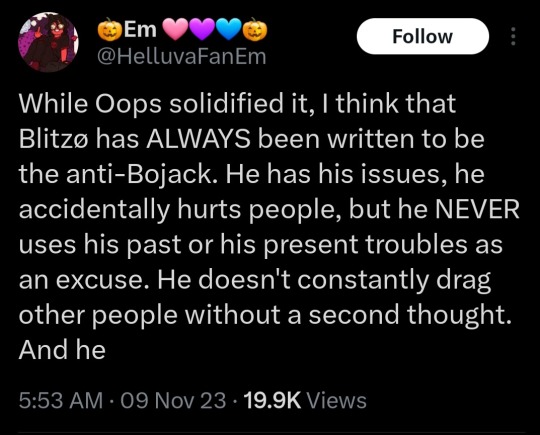
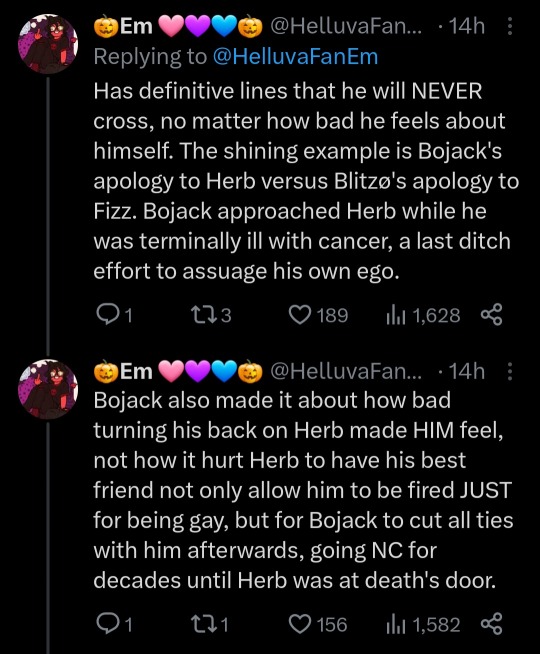
For one, Bojack’s entire character is that he doesn’t intentionally hurt others. He has his reasons that fundamentally comes from a weak sense of self associated with a child who never had the emotional support he needed growing up. Those aren’t excuses, those are the reasons. Bojack has an unhealed inner child who wants to be a good guy, but he is so caught up in his self-loathing and resentment that he doesn’t do anything about that inner child. Instead he indulges these immature emotions through self medicating with drugs and alcohol, lashing out, promiscuity, and careless spending. These are the symptoms of the problem, the problem does lie in past trauma. The issue is Bojack doesn’t see the solution as himself, but someone or something else. In my post comparing Bojack and Todd’s relationship to Blitz and Moxxie, I pointed out how Bojack and Blitz treat their “closest friends” exactly the same by verbally abusing them and tearing down their abilities. For Bojack, it is to keep Todd feeling codependent on Bojack and thus never leaving him which is abusive and manipulative. For Blitz, the narrative says it's because he is pushing Moxxie to be better, which is abusive and manipulative.
The other misconception of this post is thinking that an explanation is an excuse. Creative Screenwriting did an interview in 2019 with Raphael Bob-Waksberg’s process and philosophy of writing Bojack Horseman, quoting him for the title of the article, “Characters should be understandable in their vulnerabilities.” What Medrano’s fans fail to do, fundamentally, is understand. Their opinions and twitter orations are so barren of understanding that one must ask if they simply choose to ignore what does not serve their narrative or if they really are just incapable of comprehension.
They see Blitz’s mother’s death as a reason for his attitude more than his behavior. His behavior then necessitates that it needs to be excusable. As such, Blitz cannot actually make mistakes. Things happen by chance rather than a deliberate choice on any of the characters’ behalf. The fire in Oops wasn’t a mistake made by Blitz, if it is anyone’s mistake, it is the no-named imp who lit the candle before getting to the room. Blitz didn’t intend to bump the other performer, he just happened to turn at that moment. His mistake, then, is one that only makes sense on a metanarrative aspect. His mistake was deciding not to confess his feelings to Fizz. Which… no. As novel as the concept of the butterfly effect was in 2015, the fundamental nature of something inconsequential being attributed to a disaster negates blame. No one is going to blame the butterfly for a hurricane. Similarly, Blitz’s decision to not confess has nothing to do with the fire, in fact the fire itself is not even his accident. His contribution begins and ends with accidentally bumping the other imp; a situation that would have been entirely harmless if not for another character’s unrelated decision made off-screen.
Additionally, Blitz is a heinously insufferable individual who has been nothing but insulting and abusive to his “friend” throughout the series. He sexually abuses Moxxie in Harvest Moon by touching his penis against his will. He threatens to rape Moxxie and Millie in Murder Family. Blitz humiliates Moxxie through emasculation by masculinizing Millie over Moxxie, mocking Moxxie’s anatomy through his weight and genital size, and degrading Moxxie’s hobbies and abilities. Often without any prompting whatsoever and for Blitz’s own personal enjoyment. Blitz simply is a malicious individual, and at one point the series seemed to know that. The issue isn’t that Blitz is an awful person, it’s the lack of acknowledging that fact. The fans and Medrano conveniently ignore who this character is and what he has done to justify him instead of seeking to understand him. This is a running theme throughout the show.
I also briefly compared the scene in Oops to Herb and Bojack in this post, but I didn’t focus so much on the characters and more the metanarrative reason why Bojack worked and Helluva Boss didn’t.
Here, let’s look at why Bojack went to see Herb: Because Herb told him to. Unlike the scenario between Fizz and Blitz where they didn’t see each other for fifteen years and then conveniently run into each other and just so happen to be spotted by Crimson and Striker who, for some reason, know all about Fizz and Ozzie being a thing and they just keep Blitz around because … he’s the main character. Sure, one could argue both Crimson and Striker have a personal thing against Blitz, makes you wonder why they didn’t, you know, do anything to him? No torture or revenge of any kind, he’s just there now. Conveniently tied up and kept with Fizz instead of literally anything else they could have done with him. There is no internal logic to the characters as to why things turn out this way. As seen in the Mammon episode, it's a metanarrative compulsion to make sure Blitz is in every episode regardless of whether it makes sense or goes anywhere, or not.
Another sidebar, but the fact that so much of the series is not able to be explained within the narrative and requires an understanding of how Medrano and her team formulate a script is a huge issue. It removes the ability to properly dissect the characters as individual people and necessitates a reading of them that is how Medrano wants the audience to think about them. When it comes to the character dissections, it is effectively impossible to have a complete or coherent reading in regards to the literary philosophy of the Death of the Author. You have no story or character if you remove Medrano. The world as a whole completely falls apart unless you inject it with her metacommentary and narrative intention like one would preserve a corpse through glycerin. There is absolutely no substance here. And the longer she goes on, trying to compile the whole show into a coherent narrative of its own is like building a skeleton with a human ribcage, an ostrich spine, an elephant skull and the lower half of a barbie doll.
Bojack calls Herb after finding out he is dying from cancer, Herb tells Bojack to come visit him. He refuses to talk to Bojack any other way, and Bojack is compelled to go by his guilt, not ego. Herb calling him to his house obliterates Bojack’s ego, this is Herb’s home and he is the one being summoned. This is where Herb has the most power compared to, say, over the phone. This is not only a move of superiority on Herb’s part, but an act of submission on Bojack’s. Herb forces Bojack to come to him. Once again, this is what power dynamics look like. But, despite the resentment and awkward bitterness, he does want to see Bojack.
I don’t know how many times I can articulate this. Herb is the one in control and he is the one who wants to see Bojack and he is the one calling the shots. Not at all comparable to Fizz being kidnapped, forced to interact with Blitz and then wholly reliant on him due to the narrative in order to facilitate this forced reconciliation. Herb and Bojack are people with complex feelings and agendas. Blitz and Fizz are two dolls being smashed together and held in place by the will of a childish god.
Second, the reason Bojack calls Herb is because he feels guilty, not for abandoning Herb but because he betrayed Herb. He told Herb he would stand with him and walk off the show if they tried to fire his friend, but according to Bojack, he was a coward and didn’t keep his word. He feels guilt for that, he regrets it. But when he apologizes to Herb for it, Herb corrects him. It isn’t because Bojack didn’t keep his word, like the horse man thought, it was because he thought the betrayal was more important than their friendship.
He’s a coward, but not for staying on Horsing Around. He’s a coward because he didn’t believe in their friendship. They were together for years and Herb thought that meant something, but Bojack avoiding Herb and never reaching out to him showed how little their friendship meant to him. And it wasn’t because Bojack didn’t care, Herb knows that. And that fact is necessary to understanding the sequence. Bojack didn’t value the friendship because he thought he was valueless. He avoided Herb because he thought Herb would never forgive him, because that is how little Bojack thinks of himself. Him calling Herb is the active display of him still not forgiving himself, so he needs Herb to do it for him. And Herb knows all of this.
“You know what your problem is? You wanna think of yourself as the good guy. Well, I know you better than anyone else and I can tell you that you're not. In fact, you'd probably sleep a lot better at night if you just admitted to yourself that you're a selfish goddamn coward, who takes whatever he wants, and doesn't give a shit about who he hurts. That's you. That's BoJack Horseman."
Bojack has no value in himself, leaving him extremely fragile. So he took what he wanted, he took their relationship and defined it for both of them. He ran away, protecting himself while determining that this is what Herb would want, and left Herb alone and powerless even in his closest friendship. Which is why Herb demands Bojack come to see him, it’s Herb reclaiming his power in the relationship. And all of this only has any meaning if you clearly define the fact that Bojack apologized for the wrong thing.
There’s an alternate universe where Bojack doesn’t go back and apologize at all, and he and Herb rebuild their friendship anew in Herb’s last days and they simply, quietly agree to start over. Because that’s not off the table. Herb still values the telescope. He still values their friendship. Bojack, once again, takes it away. And Herb, a dying man, fights viciously to keep hold of it. Him not forgiving Bojack is not wanting his friend back, if anything, it’s because he desperately wants Bojack back that he won’t forgive him.
The telescope isn’t just a metaphor when it breaks. It's the symbol of their friendship the entire time, and the physical actions taking place over it are a screenshot of what happened. Bojack took their friendship and left with it. But it meant something to Herb, and you would only know that by how he fights over it now. And when it breaks it shows that, because of Bojack and his cowardly need to run away from his problems, their relationship is now, finally, beyond repair. Not because Herb didn’t forgive him. It wasn’t over when Herb didn’t forgive him. Bojack ended it, not Herb.
But just like Bojack, Medrano and her fans believe that forgiveness is the end all of the story. It’s why so many people were not invested in Fizzarolli and Blitz makeup. Because Fizz just forgiving Blitz makes everything they went through meaningless. It strips the characters and what they went through of depth and nuance in a single moment. It also validates Bojack's general mindset in the belief that one moment can fix a systemic problem. In this case, Medrano isn't the Anti-Bojack, she just is Bojack.
The issue between Herb and Bojack wasn’t the job, or even the time. It was Bojack. And it is the failure of Bojack identifying the part of himself that resulted in this outcome, and not making the choice to do anything different that results in the end of everything. Maybe Herb would never have forgiven the Bojack who left him. But that’s why Bojack needed to be a different Bojack. And he wasn’t.
Wrapping this back around to the start of the essay and how Absurdist philosophy plays into Bojack intrinsically, Herb says exactly that truth to Bojack. That if Bojack was only honest to himself and lived authentically, maybe he would be able to sleep at night. Because being good is less important than being real.
This reminds me of Jean Baptiste Clamence from Camus’s The Fall. A Frenchman in the seedy center of Amsterdam, a city encircled by canals like the rings of hell. He spends his nights in the bar just outside of the red light district, drunk off his ass, it is uncertain if he is actually telling his story to anyone at all. Over the course of four nights, he tells his story of his fall from grace. His self exile to Hell after being unable to cope with his guilt. He tells so many stories of himself, egotistically claiming he has the lost panel of the Ghent Alterpiece in his apartment, the piece titled The Just Judges.
Even his name is a plea for repentance. John. Baptist. Clemency. He claims to sleep with Judges looming over him. Words endlessly flow from him and he confesses his sins.
It’s when he fesses to witnessing the suicide of a young woman in Paris that he explains why he ran away to Netherlands. He says how she called for help after jumping into the water, but he quickly fled the scene, hearing the splashing below become eerily silent. One could argue that he couldn’t do anything. In the Paris winter, the freezing water of the canal could kill them both, let alone the dangers of trying to save someone who is drowning. The main concern being the victim drowning their savior in a frenzied panic of keeping themselves above the water. It could be said that he did the only thing he could. However, he knows she was aware he was there, so she called out to him specifically when she came to her senses. No one witnessed the incident or knew he was there but her, and no one could fault him for doing nothing.
But he feels the guilt in himself, and thus runs away.
Jean-Baptiste, Bojack and even Diane all have the same mentality. They fetishize their misery and trauma, making themselves important through the loops of suffering they inflict on themselves. Thinking that because the events happened to them, it must mean they are somehow special. That their damage meant something out of all the other people on this planet who suffer. That because they felt alone and responsible, they are a mythical chosen one selected from the masses to do something. They find value in the negative self-image they have, their pain being their purpose.
Because if it didn’t matter, why did it happen to them?
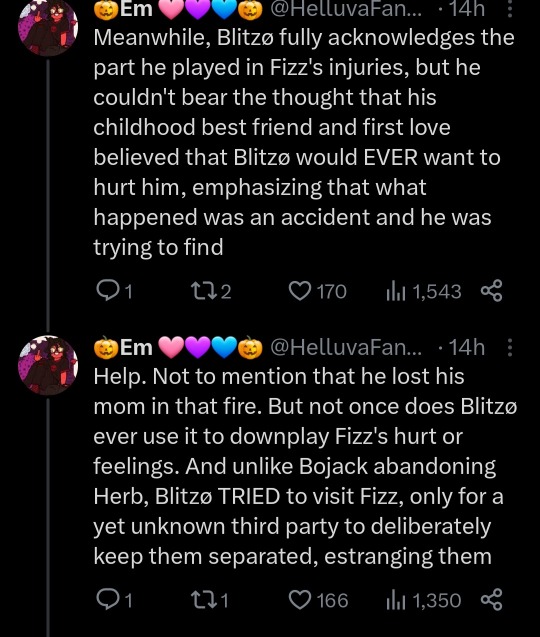
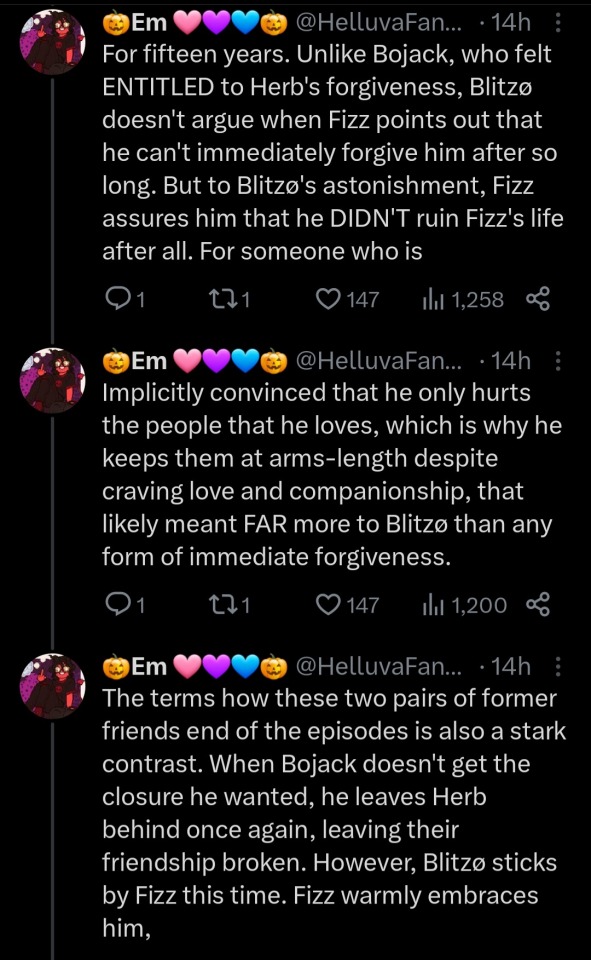
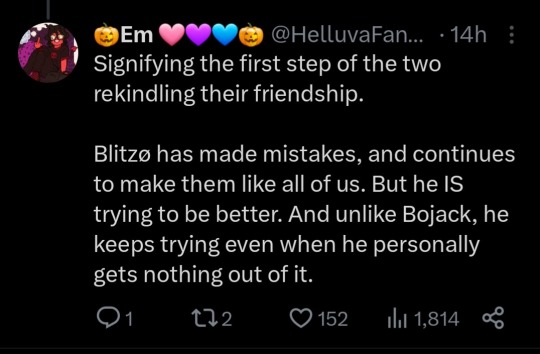
This is where I normally would keep just ripping apart the arguments, but frankly, there isn’t one anymore. For one, the original poster just blatantly lacks any fundamental understanding of Bojack as a series since the entire premise of the show is every season Bojack tries to change.
On a narrative basis, the lack of intentionality on Blitz’s part absolves him from needing forgiveness. Fizzarolli forgiving him holds no weight because Blitz didn’t intentionally set the fire, he didn’t see Fizz in the explosion when he ran away, he didn’t not try to see Fizz in the hospital and then Medrano puts the cherry on top about how Fizz’s life is actually better because of everything that happened. It’s equal parts boring and vile. The conflict is artificial, the resolution is repulsive and contrived. There is no depth to these characters and Medrano actively removes depth, either because she herself lacks the ability to comprehend it or because she knows her fans are incapable of doing so.
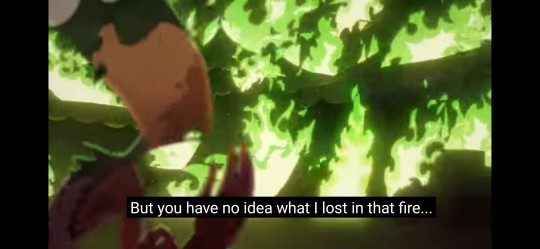
Also, let's just not comment on how this line explicitly overshadows Fizz's trauma. Everyone knows you don't end an apology with "but". That negates the whole apology. This is literally "I'm sorry you got hurt and I can never make that up to you, BUT my mom's dead so you don't even know what it's like being me and feeling responsible for that."
While the writers of Bojack sought to make their characters understandable and thus empathetic, they at no point excused or retconned the behavior. The writers on Bojack didn’t do anything to justify their characters, they were not at all focused on controlling how the audience felt about the characters. They were showing that the characters were well rounded, had reasons, why they had those reasons, what core memories made them who they are today. And the audience had the choice in how they responded to the characters. Medrano needs her audience to feel the same way about her characters as she does in order for the story to work, because she has never put forth the effort of actually telling this story.
One does not need the interviews with Bob-Waksberg to understand his cast and their story. Everything a viewer needs to know can be found in the show proper. There are not huge points of context happening just over there, off screen, between episodes and relegated to background details. Everything relevant to these characters and their stories is in the show. That has not and at this point never will be the case for Helluva Boss. So in many ways, yes. Helluva Boss is the anti-Bojack.
That's not a good thing.
187 notes
·
View notes
Text

Thank you to everyone who got me to 50 likes!
It means a lot 🥹
0 notes
Text
"If something burns your soul with purpose and desire, it’s your duty to be reduced to ashes by it. Any other form of existence will be yet another dull book in the library of life."
~ Charles Bukowski
#charles bukowski#philosophy#existentialism#qoutes#philosophy quotes#existential dread#life#reality#life series
21 notes
·
View notes
Text
“If a tree falls in the forest and no one is there to hear it, does it make a sound?”
~ George Berkeley
#george berkeley#philosophy quotes#philosophy#perception#sound of silence#existentialism#mind and reality#dilemma#life#reason
9 notes
·
View notes
Text
“I have the true feeling of myself only when I am unbearably unhappy.”
~ Franz Kafka
#philosophy quotes#philosophy#franz kafka#kafkaesque#existentialism#franz kafka quotes#kafka#kafkamindmaze#Metamorphosis#life#meloncholy#sad quotes#sad thoughts
62 notes
·
View notes
Text
“However many holy words you read, however many you speak, what good will they do you if you do not act on upon them?”
~Buddha
#buddha#philosophy#philosophy quotes#existentialism#society#realism#zen quotes#zen buddhism#wise words#buddhism#life quotes#zen#reality
29 notes
·
View notes
Text
Shikhandi: The Gender-Defying Hero of the Mahabharata
Hindu philosophy holds a simple yet profound belief: within each person resides an everlasting atman (spirit or soul) that exists independently from the physical body, surpassing characteristics such as race, gender, and sexual orientation. Stemming from a common divine origin, every atman forms a spiritual kinship, deserving of love, reverence, and fair treatment.
In the epic Mahabharata, there is a captivating tale that revolves around Bhishma's commitment to celibacy, which leads to a grand swayamvara (a ceremony or event where a bride chooses her husband from a gathering of suitors). This ceremony is where Amba, Ambika, and Ambalika are given the opportunity to choose their life partners. However, Bhishma's interference in Amba's love life sets off a series of events that ultimately culminate in her tragic destiny.
Amba's heartbreak is twofold - first, her intended husband Shalva rejects her, and then Bhishma, bound by his vow of celibacy, refuses to marry her. This leaves Amba in a state of despair, fueling her desire for revenge against Bhishma. Determined to seek justice, she pleads to the mighty god Shiva for assistance in her quest to end Bhishma's life. Miraculously, Shiva grants her wish, but tragically, Amba chooses to take her own life to expedite her ultimate goal.
There are various versions of the next part of the tale. According to certain narratives, Amba is born as the daughter of King Drupada. Upon learning from Shiva that she will eventually undergo a transformation into a man, Drupada names her Shikhandi and raises her as a boy. In this particular version, a formidable entity residing in the forest indeed bestows upon her the transformation into a man. However, in alternative accounts, Shikhandi is born as a male but develops a trans-identity due to Shiva granting them the ability to recollect their previous life.
As the Mahabharata unfolds, Shikhandi emerges as a formidable warrior who defies societal expectations of gender. Their participation in the battle of Kurukshetra serves as a powerful symbol of authenticity, challenging the conventional gender roles imposed on individuals. Shikhandi's strength goes beyond mere physical abilities; it stands as a testament to the immense power that comes from embracing one's true identity.
Shikhandi's character is truly captivating because of their personal quest for self-discovery. They challenge societal expectations of gender and proudly embrace a non-binary identity. This exploration of identity is a key theme, showcasing the intricate and ever-changing nature of being human.
As we come to the end of our journey through Shikhandi's story in the Mahabharata, we honor a figure whose legacy surpasses time, defies conventions, and forever marks the intricate fabric of mythology. Shikhandi, the ageless fighter, still instills bravery and self-exploration in the souls of those who come across their legend.
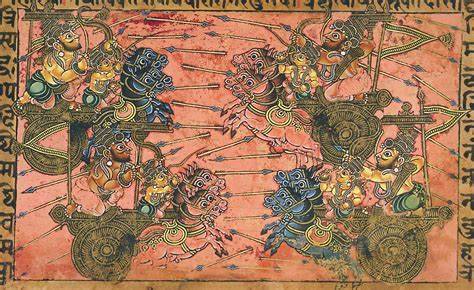

#mahabharata#shikhandi#indian mythology#lord shiva#gender identity#queerness#hindu mythology#curse#myth#myth stories#nonbinary#brave
47 notes
·
View notes
Text
Orpheus' Mixtape Magic: How the Maestro Shielded the Argonauts from Siren Spells
imagine: the Argonauts (bunch of big heroic dudes on a quest to retrieve the Golden Fleece, led by the infamous Jason) cruising through the Aegean Sea, wind in their hair, looking all heroic and stuff. But hold up, the Sirens are on the horizon, ready to go berserk.
Enter Orpheus, a musical misfit as well as a bard with a scheme as groovy as his songs.
Armed in angelic headphones, Orpheus pulls out his magical soundtrack, which includes the renowned "Siren Slayer Sounds." Every song is a weapon of auditory pleasure, crafted to counter the mesmerizing melodies of the Sirens.
Track 1: "Harmony Havoc" - Orpheus turns up the beats, delivering a rhythm that's so catchy that it would have even the most avid Siren fan tap their tails. The seductive music in the background is unnoticed by the Argonauts since they are too busy busting moves.
Track 2: "Lyre Lullaby" – Orpheus changes tempo, conjuring a tuneful illusion that turns the ship into a floating dance floor. The Argonauts, blissfully unaware of the seductive calls of the Sirens, sway to the mesmerizing rhythm.
Track 3: "Bardic Barrier Breaker" - Orpheus drops the bass with a cheeky grin, surrounding the ship in an eerie force field. Like they just showed up at the Aegean's finest musical party, the Sirens' voices bounce off the beats.
The Sirens sheepishly withdraw as Orpheus' mixtape magic wins out, knowing they're up against the ultimate maestro. Still feeling the beat, the Argonauts illustrate their appreciation for Orpheus, acknowledging him not only as a bard but also as the Dj who kept their ship from being lured by the sirens trap.
so if you ever encounter the sirens, fear not and just pull out the ultimate playlist by the grooviest Dj, Orpheus.


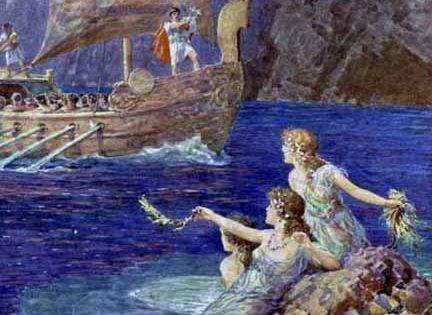
#orpheus#siren#music#jason#greek tumblr#greek mythology#greek#myth#beautiful sirens#jason and the argonauts#argonauts
9 notes
·
View notes
Text
Zany Love Theories: Agathon's Symposium, Athens' Wildest Party
just imagine you are in Athens at the most epic party of the year - it's Agathon's big win in a dramatic competition, and he's throwing a symposium to celebrate. Here's a quick recap of the wild night:
Agathon's Symposium was THE event to be at. The room was adorned with laurel wreaths, overflowing goblets of wine, and an abundance of mouthwatering dishes. Socrates, the resident philosopher and party crasher, decided it was the perfect time to ask some deep questions. He started grilling the guests on love like it was a juicy kebab.
Phaedrus began with a romantic speech about love inspiring great deeds, serenading the crowd with verses about how love can make you brave enough to challenge a Minotaur to win the heart of your beloved. He passionately waves a scroll and might even brandish a makeshift sword for dramatic effect. He extols the virtues of a lover who's motivated by the desire to win the admiration of their beloved. He believes love can inspire individuals to perform noble and courageous acts, such as risking their lives in battle to earn the respect of their beloved. while Pausanias rambled on about "heavenly" and "common" forms of love. He suggests that "heavenly love" requires wearing angel wings and spouting philosophy, while "common love" is more like a fiery tango under the moonlight.
Aristophanes, the class clown of the Symposium, stole the show with a bizarre yet hilarious story about humans originally having four legs. Believing love is the quest to find your dance partner with whom you'll groove through life.
Then, Eryximachus, the physician, chipped in with a quirky theory about love as the balance of bodily fluids. Love, he says, is all about the right blend of bodily "ingredients." He recommends a pinch of intellectual stimulation, a dash of physical attraction, and just a sprinkle of cosmic harmony. Stir well, and voila, you have a love potion!
In jumps in Socrates, questioning everyone's theories with an endless stream of "Why?" and "What if?" He's like the ultimate party crasher, turning everyone's wild theories into thought-provoking puzzles.
Just when things were getting a bit too serious, the charismatic Alcibiades stormed in, clearly having had one too many cups of wine. He declared his love for Socrates like he's in an ancient Greek soap opera, causing a mix of laughter and awkward tension.
The Symposium was like a combination of a TED Talk, a stand-up comedy show, and a soap opera all rolled into one wild Athenian night.

#justphilosopherthings#athens#live from platos cave#someoneinvitemetothisparty#greek philosophy#socrates#symposiums#wine party#bunchofphilosphersdrunk#drunk confessions#what is love#why love?#love.#drunkdudestalkingaboutlove#greece#greek tumblr#greek posts#greek gods
7 notes
·
View notes
Text
Love's Cosmic Secret: The Myth of Our Missing Halves
Why Some Folks in Love Feel Complete, While Those on the Hunt Feel Like Something's Missing?
Long ago, humans weren't quite the way we are today. Picture this: we used to be round, with two bodies facing outwards, each sporting a single head and two faces looking in opposite directions. We had four legs, four arms, and four hands, and there were not just two, but three sexes back then. The first type had two male bodies, and they were believed to be the offspring of the sun. The second had two female bodies, and they were the children of the earth. And the third had one of each, and they were born under the moon's watchful gaze.
These peculiar beings could walk forwards, backwards, and even roll around at lightning speed. But one fateful day, they got a bit too ambitious and tried to challenge the gods by scaling Mount Olympus. Needless to say, Zeus was far from thrilled. As punishment, he took a big cleaver and sliced each one in half.
Since that eventful day, us humans have been yearning for our missing halves – the parts that make us feel whole. The male bits that got separated from other males became male homosexuals, the female parts that were split from their female counterparts turned into lesbians, and those who originally had one of each ended up as heterosexual.
When these divided souls come to realize they're missing their other half, they're overjoyed to find them again. It's like a cosmic puzzle coming together, and they feel complete once more.
Have you ever felt this yearning?
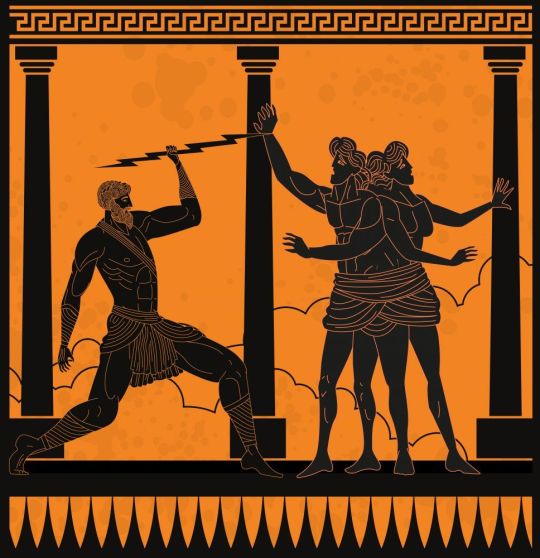
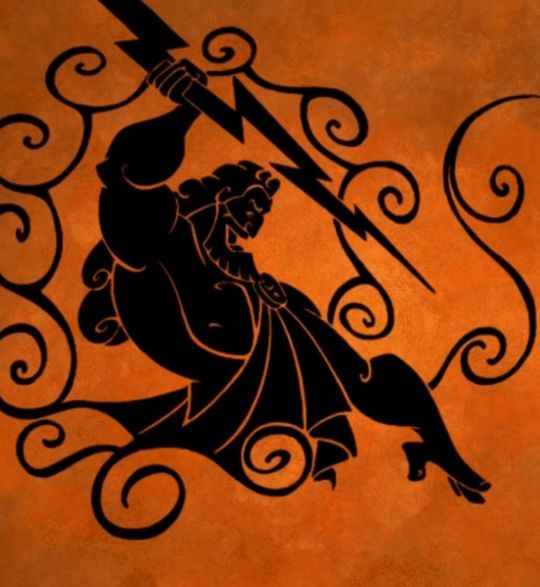
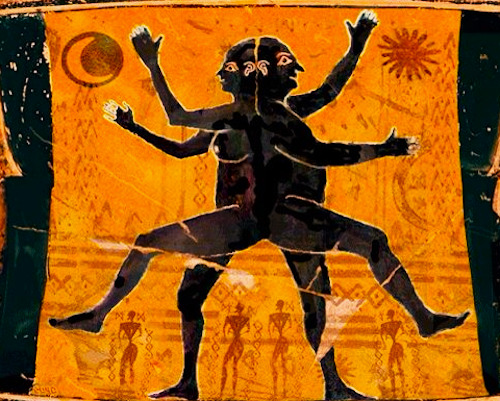
#lgbtqia+#greek mythology#mythology and folklore#gods#zeus#soulmates#lore olympus#live from platos cave#Aristophanes#mythical creatures#greek#Plato#soul#homosexuality#heterosexuality
37 notes
·
View notes
